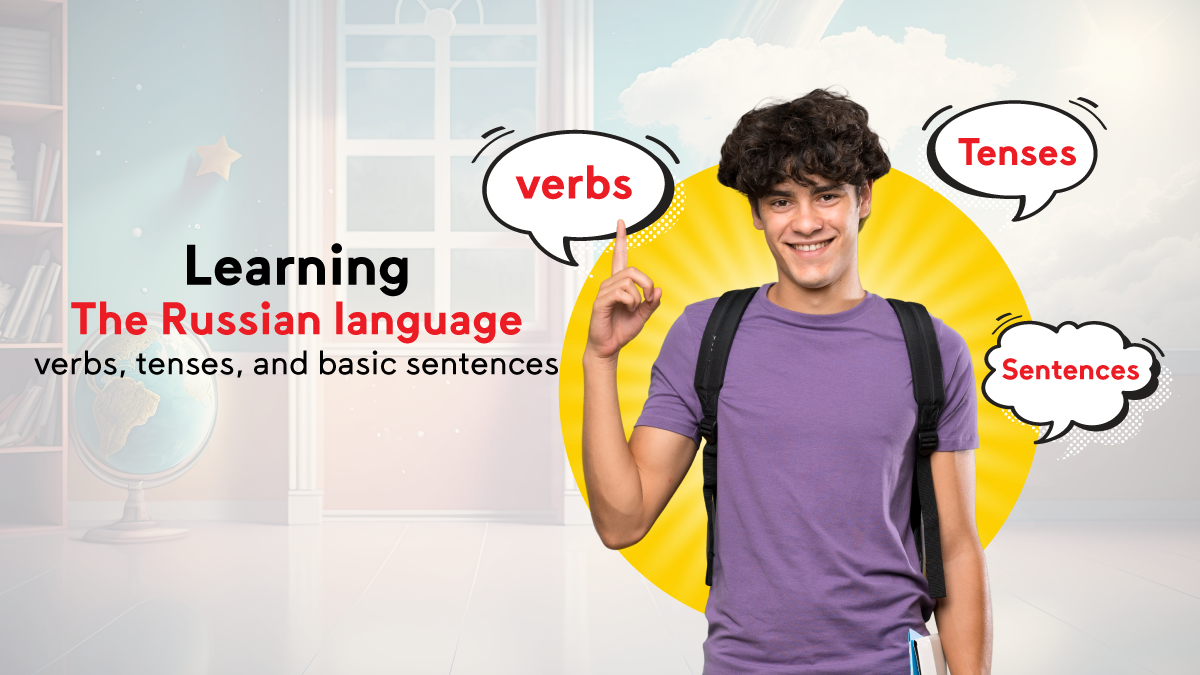
the Russian language became popular, and more and more people are learning it, and that makes sense as it is considered the most spread Eastern Slavic language.
More than 300 million speak the Russian language as their first or second language, and it is considered the mother tongue for around 16 countries like Russia, Belarus, Kazakhstan and plenty of other north European countries.
However, plenty of people were describing the Russian language as a hard language and not easy to be learned, which is actually can be true for a reason which is simply that the Russian language has a different root (Slavic) other than the other European languages roots (mostly Latin).
So let’s know more about the Russian language, and figure out by ourselves whether ‘is it really hard or it is just different from other languages.
Learning the Russian language for beginners
The Russian language comes from the Slavic language family, which makes it completely different from its neighbours’ languages which come from mostly Latin origin, that sounds different in wide range whether in the pronunciation or the writing.
The Slavic language used a unique style of writing and alphabet, the letters were written in the Cyrillic alphabet which has different pronunciations even if the letters are written in a similar way.
So, since we mentioned that the Russian language has a different origin other than that in other European countries, let’s take a look at some of the features that distinguish this language from other languages:
- The Russian language has its own unique way in writing and pronunciation which can make it a bit challenging in the beginning because:
- There are some letters that have similar pronunciations which can make the new learners easily get confused like (Ш), (Щ), (Ч), (Ж), (Ц) and (С), which need practice to get them right.
- There are some other letters that are written but they’re not read like (Ъ), (Ь), (Ы) and (Э), but still, the user must be able to identify their positions and use them properly.
- Since Russia is considered the largest city in the world, and millions of people are using the Russian language in more than hundreds of cities so it’s logical that they have a wide variety of dialects, words’ usages and pronunciations.
- Then we have the Grammar, and we can find that the Russian language has a varied flexible type of grammar, unlike the other languages:
- We can notice that the sentence in the Russian language doesn’t have a specific rule or order, unlike the other languages, so the subject is not necessarily followed by a predicate and it can be reordered in different forms.
- The conjugation of Verbs in the Russian language differs according to the number, mood, tense, gender, and aspect like in other languages, and the verbs are divided into regular and irregular verbs also.
- The adjectives are conjugated based on the case, number, and gender, and are supposed for the user to be mindful of them.
- The nouns are conjugated as well based on the case, number and gender, besides their position in the sentence and the type of the noun.
- There are six types of cases that are identified in the sentence, such as nominative (subject), genitive (possession), dative (indirect object), accusative (direct object), instrumental (means), or prepositional (location).
- The Russian language is using the old Cyrillic writing style which is using different letter shapes and sounds from the Latin letters, which makes it not familiar.
Can learners learn the Russian language online?
After what we mentioned earlier you must have been thinking that it’s true that the Russian language is hard and it’s not easy to learn, especially if you don’t have a private tutor that can follow up with you.
We can admit that the Russian language can be very flexible and doesn’t stick to specific rules or has plenty of them that it’s hard to master, but that’s only in the beginning and it can be an advantage or a disadvantage for new learners.
However, thanks to the internet, we have tons of educational sources that can help us learn the Russian language, they’re variable and different so for sure you can find your style that will suit you can boost your learning process, like:
- The educational applications:
There are some apps that can make learning the language easier and more enjoyable, these apps can focus on only one aspect of the language like the conversations or learning vocabs and some of them can focus on different multiple aspects, like Dualingo, memrise, Bable and many others.
- The websites or blogs:
The educational websites and blogs that offer information or lessons about the language itself or some tips to make it easier to learn, the best methods, or some small bites daily lessons.
- The recorded courses or videos
You can find them on youtube channels for instance that explain the language in a video, some times there are some courses that are given on some platforms that are recorded so the students can get back to it.
- The Educational centres
Some educational centres tend to give an interactive live course in which you can find the tutor teaching the student directly or live whether that was online or offline.
So actually the internet is one of the best sources you can have to learn any language generally and the Russian language specifically, however, there are plenty of sources that may distract you, so you might need to choose the most trust worth sources that suit you the best.
That’s why we encourage you to depend on Elmadrassa.com as one of the worthiest educational centres that will definitely help you master the Russian language through:
- Teaching the Russian language by an experienced staff that will guide you through the whole learning process.
- Examining the progress and the performance all the time.
- The student can choose his own method and style that they will like to learn.
- Covering the different skills of the language.
Moreover, the teachers will follow up with the students constantly and answer any questions that they would like to ask.
Activities that can support the Russian language learners
As a general language learner and a Russian language specifically, you must have watched plenty of videos and tips to make your learning journey easier for you, so let’s mention some of these activities that are definitely helpful:
- Listening as much as possible:
You must have heard that in order to learn a language you must listen as much as possible, and it’s actually true, since you can’t actually learn any language and especially the speaking skill without making your mind accustomed to the sounds of the Russian language.
- Games:
Games can be a very useful and enjoyable way at the same time to work on different aspects of the language in an untraditional way, like playing word games to memorise new vocabs or trying to describe things around you to improve your expression skills, games can be very effective methods, especially for beginners.
- Watching entertaining programs in the Russian language:
If you are a fan of movies, series, general talk shows or entertaining programs on TV, you would definitely like this method the most, as you can start listening to all of them in the Russian language that would be of great benefit to your skills in the long run.
- Dedicate some time to practice
Any skill you want to learn requires you to practice it constantly in order to master it, and since we are speaking of a language so it’s inevitable actually because learning a new language can be challenging in the beginning and if you didn’t practice it won’t be easier actually.
Especially if we’re speaking about a unique language such as the Russian language, and since you’re language can be different probably from the Russian language so you will need more time to get accustomed to and the beginning is the hardest step.
Learning the Russian language: verbs, tenses, and basic sentences















